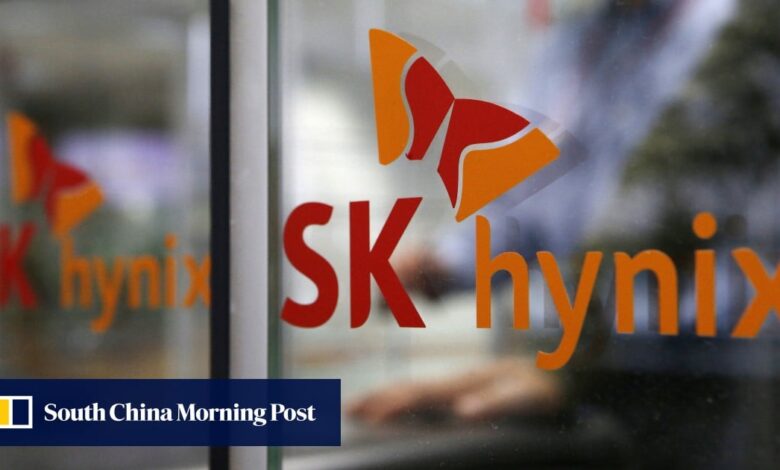SK Hynix’s revenue more than doubles as AI demand powers on

SK Hynix said quarterly revenue more than doubled and that its capex this year would likely top earlier plans, stoking hopes that a global boom in spending on AI hardware will persist in 2024.
The company, a key partner to Nvidia in supplying chips to train artificial intelligence models, reported better-than-expected sales of 16.4 trillion won (US$11.9 billion) as revenue for its high-bandwidth memory surged more than 250 per cent. Operating profit in the three months to June also beat expectations, coming to 5.47 trillion won with an operating margin of 33 per cent, helped by a rise in overall prices of DRAM and NAND.
The company said it will mass produce its next-generation 12-layer HBM3E chips this quarter, widening its lead over rivals Samsung Electronics and Micron Technology in designing and supplying the high-end memory that powers Nvidia’s AI accelerators. HBM3E products would make up about half the volume of all its HBM chips this year, it said.

SK Hynix’s report may assuage growing concerns that AI spending will begin to decelerate as US curbs on supplying China take hold, while the frenetic pace of data centre investments slows. This week, Morgan Stanley cut AI chip-sector stocks including SK Hynix and Taiwan Semiconductor Manufacturing Co from its focus lists, warning that it may be time to take a breather. US tech stocks went into a tailspin overnight as investors soured on the promise of AI, with Nvidia falling 6.8 per cent.
SK Hynix remains one of the main beneficiaries of a race to supply components essential to creating ChatGPT-like generative AI services. The Korean company revealed in May that its capacity to make high-bandwidth memory chips was almost fully booked through 2025, reflecting a widening lead over Samsung.
That has helped power a 47 per cent gain in SK Hynix from the start of the year to Wednesday’s close, a rally mirrored by many of the AI sector’s emerging new leaders. But that global stock boom wobbled last week after investors reassessed the potential for further gains amid looming central bank policy shifts and the US presidential election. Some analysts warned that the hype over untested AI applications was driving outsized market gains with AI technology yet to reach its full potential.
“We are not calling for the ‘end of the cycle’ – but with all the focus on shortages and talk of a new AI paradigm, it is important not to lose sight of the normal, cyclical nature of the semiconductor market,” Morgan Stanley analysts including Shawn Kim and Charlie Chan wrote in a separate report.
For the long run, SK Hynix is earmarking some US$15 billion in South Korea to meet surging demand for high-end chips, on top of a plan to spend US$3.9 billion on an advanced packaging plant and research centre for artificial intelligence products in Indiana

Source link

